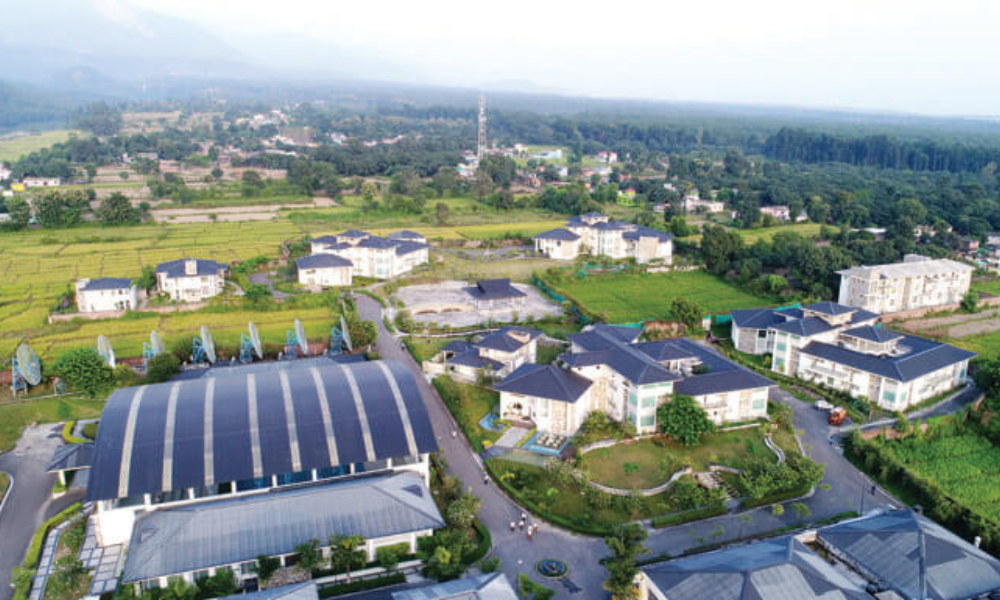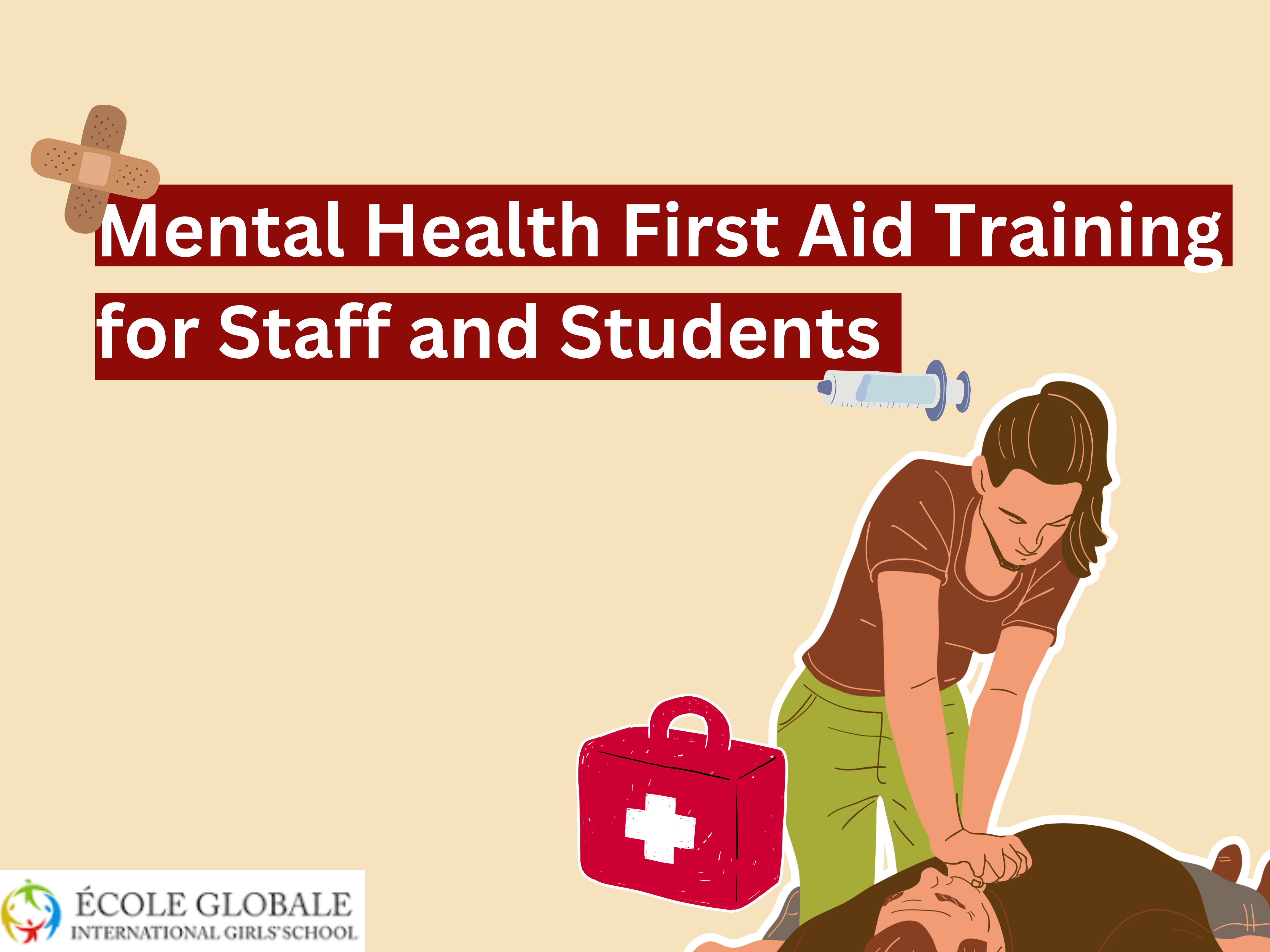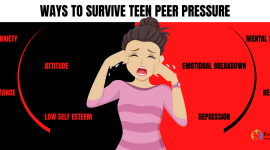The mental health and well-being of students and staff in educational institutions have gained significant attention over recent years.
Boarding schools in Dehradun, in particular, face unique challenges due to the immersive and intensive nature of their environment. Dehradun, known for its prestigious educational institutions, is home to several boarding schools in Dehradun that cater to diverse student populations from across the country and abroad.
Schools in Dehradun, such as Ecole Globale International Girls’ School, emphasize holistic education that includes not just academic excellence but also emotional and psychological well-being.
The Unique Environment of Boarding Schools in Dehradun

Dehradun, nestled in the foothills of the Himalayas, provides a serene and conducive environment for education. Boarding schools in this region are renowned for their academic rigor, discipline, and all-round development. However, the boarding school setting also means that students are away from their families, living in a structured and often competitive environment.
The unique environment of boarding schools in Dehradun presents several mental health challenges:
- Homesickness and Adjustment Issues: Students often face difficulties in adjusting to life away from home.
- Academic Pressure: The high expectations for academic and extracurricular success can lead to stress and anxiety.
- Social Dynamics: Living in close quarters with peers can lead to conflicts, bullying, and social anxiety.
- Identity and Self-Esteem Issues: Adolescents in boarding schools may struggle with self-esteem and identity, exacerbated by comparison with peers.
Importance of Mental Health First Aid Training

Mental health first aid (MHFA) training equips individuals with the skills to assist someone experiencing a mental health crisis or developing a mental health problem. For boarding schools in Dehradun, Mental Health First Aid Training is particularly vital due to the constant interaction between staff and students in a residential setting.
Benefits for Students
- Early Identification and Intervention: Students trained in MHFA can identify signs of mental distress in themselves and their peers, leading to early intervention.
- Peer Support: Trained students can offer initial support to their peers, fostering a supportive community.
- Reduction in Stigma: Training helps reduce the stigma around mental health issues, encouraging students to seek help.
- Resilience Building: Students gain skills to manage their own mental health and cope with stress and challenges.
Benefits for Staff
- Enhanced Support System: Staff members trained in MHFA can provide immediate support to students, enhancing the overall support system within the school.
- Improved Student-Teacher Relationships: Understanding mental health issues can improve relationships between students and teachers, creating a more empathetic environment.
- Crisis Management: Trained staff can effectively manage mental health crises, ensuring the safety and well-being of students.
- Professional Development: Mental Health First Aid Training contributes to the professional development of staff, equipping them with valuable skills.
Implementing MHFA Training in Boarding Schools in Dehradun

To effectively implement Mental Health First Aid Training in boarding schools, a structured approach is required. Here’s a comprehensive plan for schools in Dehradun:
1. Needs Assessment
Conduct a thorough needs assessment to understand the specific mental health challenges faced by students and staff. This can involve surveys, focus group discussions, and consultations with mental health professionals.
2. Collaboration with Mental Health Professionals
Partner with mental health organizations and professionals to develop a tailored Mental Health First Aid Training program. Collaboration ensures that the training is relevant and effective for the boarding school context.
3. Training Modules
Develop comprehensive training modules covering the following areas:
– Understanding Mental Health: Basic concepts of mental health and common mental health issues.
– Identifying Signs of Mental Distress: Recognizing symptoms of stress, anxiety, depression, and other mental health problems.
– Providing Initial Support: How to approach and support someone in distress.
– Crisis Management: Handling mental health crises such as panic attacks, self-harm, and suicidal thoughts.
– Self-Care: Strategies for maintaining one’s own mental health and well-being.
4. Training Delivery
Implement a phased training program:
– Initial Training: Conduct intensive training sessions for key staff members and student leaders.
– Ongoing Training: Regular refresher courses and advanced training sessions to keep skills updated.
– Peer Training: Encourage trained students to conduct peer-led workshops and discussions.
5. Creating a Supportive Environment
Foster a supportive and inclusive school culture:
– Open Discussions: Encourage open discussions about mental health to reduce stigma.
– Support Systems: Establish support systems such as counseling services, peer support groups, and helplines.
– Wellness Programs: Integrate wellness programs that include activities such as yoga, meditation, and stress management workshops.
6. Monitoring and Evaluation
Regularly monitor and evaluate the effectiveness of the Mental Health First Aid Training program:
– Feedback Mechanisms: Collect feedback from participants to continuously improve the program.
– Impact Assessment: Assess the impact of training on students’ and staff’s mental health and well-being.
– Adjustments: Make necessary adjustments to the program based on feedback and assessments.
Case Study: Ecole Globale International Girls’ School

Ecole Globale International Girls’ School in Dehradun serves as a model for implementing Mental Health First Aid Training . With a commitment to holistic education, Ecole Globale has integrated mental health awareness and support into its curriculum and daily activities.
Initiatives at Ecole Globale
- Comprehensive MHFA Training: Ecole Globale offers comprehensive Mental Health First Aid Training for staff and senior students, focusing on early identification and support.
- Counseling Services: The school has a dedicated counseling team available to students and staff for individual and group sessions.
- Wellness Programs: Regular wellness programs including yoga, meditation, and workshops on stress management and resilience building.
- Peer Support Groups: Trained peer support groups provide a platform for students to share their experiences and support each other.
- Awareness Campaigns: Regular mental health awareness campaigns and activities to promote understanding and reduce stigma.
Outcomes
The implementation of Mental Health First Aid Training at Ecole Globale has led to:
– Increased Awareness: Greater awareness and understanding of mental health issues among students and staff.
– Early Intervention: Early identification and support for students experiencing mental health challenges.
– Supportive Environment: A more supportive and empathetic school environment where students feel comfortable seeking help.
Conclusion
Mental health first aid training is an essential component of a comprehensive approach to mental health in boarding schools in Dehradun.
By equipping staff and students with the skills to identify and support those experiencing mental health issues, schools can create a safer, more supportive environment that fosters the overall well-being of their community.
Boarding schools in Dehradun, with their unique environment and challenges, stand to benefit immensely from implementing Mental Health First Aid Training . Schools like Ecole Globale International Girls’ School exemplify how such initiatives can be successfully integrated, leading to positive outcomes for both students and staff.
As we move forward, it is imperative that more schools in Dehradun adopt Mental Health First Aid Training , ensuring that mental health support becomes a cornerstone of holistic education in the region.









